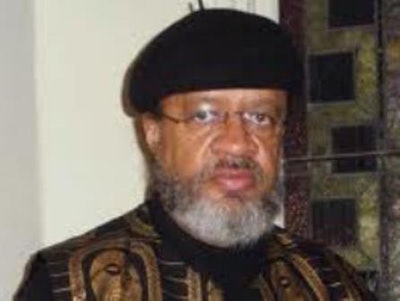 Kirby claims he was wrongfully dismissed from Lexington Theological Seminary in 2009.
Kirby claims he was wrongfully dismissed from Lexington Theological Seminary in 2009.The Black former tenured professor at Kentucky’s Lexington Theological Seminary who was fired amid economic calamity in 2009 and filed suit took his fight further last week when his case was argued before the seven-member Kentucky Supreme Court in Frankfort.
The case, Kirby v. Lexington Theological Seminary, turns on the application and scope of the so-called “ministerial exception” and, once it reached the state Supreme Court earlier this year, attracted briefs from national advocacy groups known for taking on legal matters of major consequence.
In its amicus curiae brief, the Scottsdale, Arizona-based Alliance Defending Freedom called for absolute immunity for seminaries in these kinds of cases. In its amicus curiae brief in the related court case—Kant v. Lexington Theological Seminary—which involves the seminary’s only Jewish professor’s firing at the same time as Kirby’s, the Anti-Defamation League opposed the position of the seminary. Lawyers for that group questioned how a Jewish scholar who always held himself out as a non-adherent to the tenets of the seminary’s faith and taught courses such as “Jesus in Film,” could be denied his day in court as a ministerial employee.
“We are gratified that the Kentucky Supreme Court granted our Petition for Review filed last year and engaged in the challenging work of considering the limiting principles necessary in this First Amendment area,” said Amos Jones, an Assistant Professor of Law at Baptist-affiliated Campbell University in Raleigh, N.C., who argued for the plaintiff, Jimmy Kirby, of Lexington.
In his lawsuit, Kirby claims that he was wrongfully dismissed in 2009, as the seminary endured economic uncertainty. The seminary successfully argued that his firing was not challengeable because of the ministerial exception, first in Fayette Circuit Court in Lexington in 2009, and later in 2012 before the Kentucky Court of Appeals, which cited intervening precedent from the Supreme Court of the United States. The high court held in January 2012 that religious organizations can hire or fire certain kinds of employees without government review, for the first time recognizing an exception that had appeared in common law forty years earlier.
During the state Supreme Court hearing, the seven justices jousted with defense attorney Richard Griffith of Lexington, who said that the seminary is in fact independent of the Christian Church (Disciples of Christ) but nevertheless is entitled to the legal shield that the free-exercise clauses of the federal Constitution provide.
Jones argued that his client was not a ministerial employee as the Supreme Court has conceived of the new exception and that the dispute should be adjudicated based on contract principles and anti-discrimination statutes rather than being dismissed as too entangled with the internal affairs of a faith community.
Kirby, who is Black, is an un-ordained layman who belongs to the Christian Methodist Episcopal Church, while the seminary is related to the Christian Church (Disciples of Christ) denomination. Kirby, who earned a doctorate in theology from Boston University and taught courses in social ethics for 15 years at the seminary, alleges that the institution’s tenure policy prohibited firing without due process.
“If the seminary tenure contract from 2002 was not enforceable, then why were they offering Professor Kirby a severance agreement in 2009 containing contractual inducements to allow them out of the tenure contract?” Jones asked.
Jones, who teaches Contracts and Professional Responsibility at Campbell and took over Kirby’s dismissed case in 2010, describes himself as “a committed Baptist layman devoted to a sensibly scaled but not impenetrable ‘wall of separation’ between church and state.”
Though Kirby lost at the Kentucky Court of Appeals in a 3-0 decision last year, the Kentucky Supreme Court granted Jones’s Petition for Discretionary Review that cleared the way for the August 23 hearing.
A decision from the Kentucky Supreme Court is expected in the next few months.
If Kirby, 69, prevails, the case is likely to proceed to where it was when it was dismissed from the Fayette Circuit Court in 2009. If Kirby does not prevail, Jones has vowed to petition the Supreme Court of the United States for review.
“This seminary has been offering and entering into ordinary contracts to professors for years,” Kirby said. “There was never any indication until they wanted to dismiss this case in late 2010 that they deemed these contracts entirely unenforceable and that I was caught up in a so-called ecclesiastical matter. If they intended to hire and fire tenured professors for any reason at any time, then we have a problem of ungodly fraud.”















